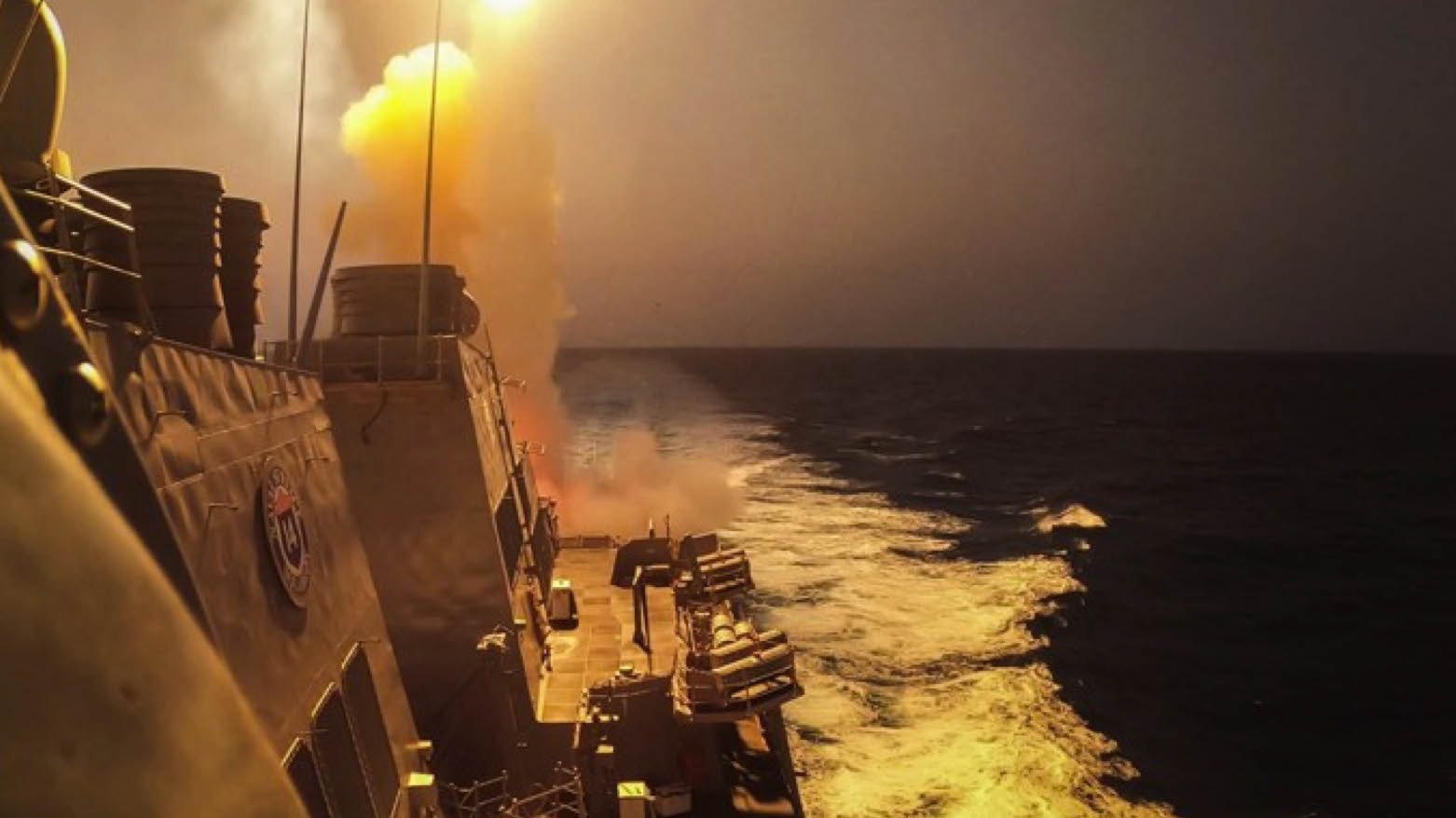U.S., U.K. strike more than 60 Targets after Houthis ignore repeated warnings against attacks on international shipping
Thursday night's strikes were the most serious and extensive U.S. response so far to any of the militia attacks, a small indication of U.S. military capabilities.

WASHINGTON DC, United States (Kurdistan24) – After repeated warnings to the Houthis against attacking international shipping in the Red Sea, the U.S. and U.K. struck over 60 targets in Yemen on Thursday night, following yet one more Houthi strike earlier that day.
The Chairman of the House Foreign Affairs Committee, Rep. Michael McCaul, (R, Texas) welcomed the strike, affirming, “Tonight we are beginning to restore deterrence.” His statement reflected a widespread view among Republicans that the administration had been too weak in responding to a series of assaults by Iranian proxies in Iraq, Syria, and Yemen.
Notably, Thursday night’s attack was the most serious and extensive U.S. response to any of those attacks. It was a small indication of what the U.S. is capable—and which the Biden administration had refrained from doing so far.
The Houthis responded to the strikes by threatening that the U.S. and Britain would pay “a heavy price,” while Iran denounced the strikes as a "clear violation" of Yemen’s “sovereignty and territorial integrity” and of international law.
The Retaliatory Attack
The U.S. provided the bulk of the firepower for the strikes on Houthi targets, and its attack came from the air, sea, and below the sea.
The assault struck “over 60 targets at 16 Iranian-backed Houthi militant locations,” the Commander of AFCENT, the Air Force component of CENTCOM, said in a written statement.
The targets included “command and control nodes, munitions depots, launching systems, production facilities and air defense radar systems,” he continued.
“Over 100 precision-guided munitions of various types were used,” he stated, as he explained that “Naval Forces Central Command aircraft and Tomahawk Land Attack Missiles launched from surface and sub-surface platforms were also involved.”
In Washington, President Joe Biden issued a statement explaining that the strikes were “In direct response to unprecedented Houthi attacks against international maritime vessels in the Red Sea—including the use of anti-ship ballistic missiles for the first time in history.”
Describing the disruption to international shipping, and, by extension, the cost to the international economy, Biden said, “More than 2,000 ships have been forced to divert thousands of miles to avoid the Red Sea.” He also noted that despite multiple warnings, “On January 9, Houthis launched their largest attack to date-directly targeting American ships.”
Read More: US, British forces shoot down 21 drones and missiles fired from Yemen
Biden concluded his statement with a warning, “I will not hesitate to direct further measures to protect our people and the free flow of international commerce as necessary.”
Background to the U.S., U.K. Strikes
The Houthi attacks began in mid-November, over a month after Hamas’s Oct. 7 bloody and brutal assault on Israel which triggered the Gaza war, now in its 97th day.
The Houthis claim they are acting in support of Hamas. But, almost certainly, that is just an excuse.
As John Bolton, National Security Advisor under Donald Trump and America’s U.N. ambassador under George W. Bush, advised Kurdistan 24 last week, “I look at the conflicts across the region as all being on one chessboard, and the responsible party here are the ayatollahs in Tehran through their surrogate proxy groups—terrorists like Hamas, Hizbollah, the Houthis in Yemen, the Shi’ite militia groups in Iraq and Syria.”
Read More: Amb. John Bolton: Biden Administration fails to understand Iran’s centrality in regional attacks
The highly-regarded Institute for the Study of War has expressed a similar view of Iran’s centrality, explaining, “Iran and its so-called ‘Axis of Resistance’ are exploiting the Israel-Hamas war to support their objective of expelling US forces from the Middle East.”
The Houthis had plenty of warnings prior to the joint U.S., U.K. strikes, but chose to ignore them. In mid-December, Washington announced the formation of a multinational naval task force to protect international shipping, which then had then been under Houthi attack for a month.
Read More: US Sec Def Announces Coalition to Defend Shipping Against Houthi Attacks
On Jan. 3, the U.S. and 12 other countries issued a statement calling for an “immediate end” of the Houthis’ “Illegal attacks,” warning that we “are determined to hold malign actors accountable for unlawful seizures and attacks.”
And on Wednesday, the U.N. Security Council approved a resolution calling on the Houthis to “immediately” stop their attacks on international shipping.
The Houthis heeded none of those warnings, and with their attack on Thursday, the U.S. finally responded.